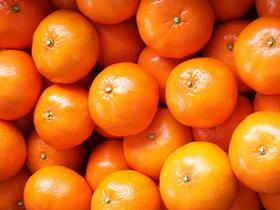
The rapid expansion of Egypt’s citrus acreage, and a government plan to transform more than 200,000 hectares of desert south of the Nile into irrigated farmland, has raised concerns in Spain that its dominance of the European market could be under threat.
Egyptian citrus exports have risen by 66 per cent in the last five years, according to Spain’s Citrus Management Committee (CGC), and in the last two seasons the country has established itself as the biggest non-Mediterranean supplier of fresh citrus to Europe. However, according to a source at the CGC, Egypt’s arrival on the European market “has to be put into context”.
Spain remains the world’s largest exporter of fresh citrus, accounting for 26 per cent of international citrus trade, and in oranges and mandarins in particular Spain is still a dominant force. “In oranges and mandarins, our country – with quotas of around 69 per cent and 80 per cent, respectively – is an irreplaceable supplier in the EU,” the source says.
But in oranges Egypt is looking to shake up the market. Huge new plantations are being granted to large export corporations south of the Nile and when they enter production they could impact the European orange market, the CGC warns.
In several respects, Egypt already has an advantage over its European rivals, the CGC argues. Not only are its wages significantly lower than in Spain, its producers are also not subject to the same environmental obligations as their EU counterparts, with fewer restrictions on water usage and plant protection.
Despite this, Spanish produce has various plus points, according to Lincolnshire-based supplier Fesa. “Spain has always offered a value-added service to European consumers, including the UK,” says commercial director Sisco Tello. “We buy most of our citrus in a packaged form, and this is where Spanish packers have an advantage over the competition in other countries. Transit times of two to three days means that sales units can be pre-packed and date-coded at source, and delivered to supermarket depots for optimum stock rotation and therefore freshness.”
It also remains to be seen whether Egypt has the socio-political stability required to complete these grand projects and attract enough investment to challenge Spain. But the source at the CGC warns that in a market where a few large companies control most of Europe’s fruit and vegetable production, the supermarket price war could favour cheaper operations.



